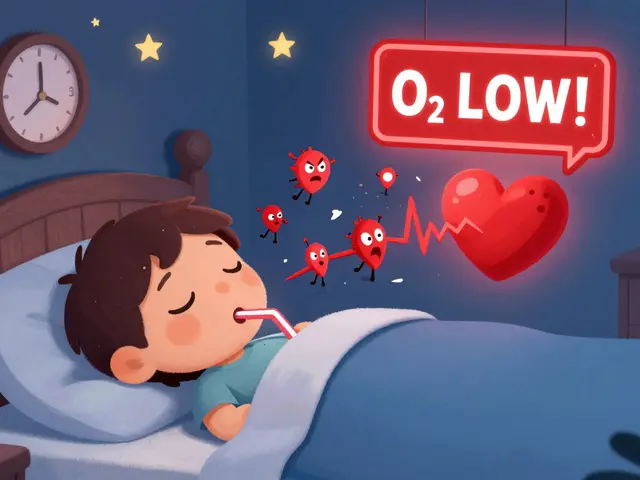Understanding Osteoporosis and Bone Health
Osteoporosis is a medical condition that affects millions of people worldwide. It is characterized by a decrease in bone density, which leads to an increased risk of fractures and other injuries. As we age, our bones naturally lose some of their density and strength, but for individuals with osteoporosis, this process can be significantly accelerated.
Maintaining good bone health is critical to preventing osteoporosis and ensuring that our bones remain strong and healthy throughout our lives. In this article, I will discuss the impact of dydrogesterone, a synthetic hormone, on bone health and osteoporosis prevention. I will also provide information on other factors that contribute to bone health and steps you can take to lower your risk of developing osteoporosis.
The Role of Dydrogesterone in Bone Health
Dydrogesterone is a synthetic hormone that is commonly used to treat various hormone-related conditions, such as irregular menstrual cycles, endometriosis, and infertility. It is structurally similar to the naturally occurring hormone progesterone and can have similar effects on the body.
Recent studies have shown that dydrogesterone may have a positive impact on bone health by promoting bone formation and reducing bone resorption. This can lead to an increase in bone density and a reduced risk of fractures, making it a potentially useful therapy for individuals with osteoporosis or those at risk of developing the condition.
How Dydrogesterone Promotes Bone Formation
One of the ways in which dydrogesterone may contribute to bone health is by promoting the formation of new bone tissue. This process, known as bone remodeling, involves the activity of specialized cells called osteoblasts, which produce new bone matrix.
Dydrogesterone has been shown to stimulate the activity of osteoblasts, leading to increased bone formation. This can help to maintain or improve bone density, reducing the risk of fractures and other osteoporosis-related complications.
Reducing Bone Resorption with Dydrogesterone
In addition to promoting bone formation, dydrogesterone may also help to prevent bone loss by reducing the activity of cells called osteoclasts, which are responsible for breaking down bone tissue. This process, known as bone resorption, is a natural part of bone remodeling and is necessary for maintaining healthy bones.
However, in individuals with osteoporosis, the balance between bone formation and resorption is disrupted, leading to excessive bone loss. Dydrogesterone has been shown to reduce the activity of osteoclasts, helping to maintain a healthy balance between bone formation and resorption, and ultimately protecting against bone loss.
Benefits of Dydrogesterone for Postmenopausal Women
Osteoporosis is a particular concern for postmenopausal women, who experience a rapid decline in bone density due to the decreased production of estrogen. Estrogen plays a crucial role in maintaining bone health, and its decline during menopause can significantly increase the risk of osteoporosis.
Dydrogesterone, as a synthetic hormone, can help to counteract some of the effects of estrogen deficiency in postmenopausal women. By promoting bone formation and reducing bone resorption, dydrogesterone may help to maintain or improve bone density in this population, potentially reducing the risk of fractures and other osteoporosis-related complications.
Dydrogesterone and Hormone Replacement Therapy
Hormone replacement therapy (HRT) is a treatment commonly used to alleviate menopause symptoms and reduce the risk of osteoporosis in postmenopausal women. HRT typically involves the use of estrogen, either alone or in combination with a progestogen, such as dydrogesterone.
The addition of dydrogesterone to an HRT regimen can provide additional benefits to bone health, as it has been shown to enhance the positive effects of estrogen on bone density. Furthermore, dydrogesterone can help to counteract some of the potential side effects of estrogen therapy, such as an increased risk of endometrial cancer, making it a valuable component of HRT for postmenopausal women.
Other Factors Affecting Bone Health and Osteoporosis Prevention
While dydrogesterone may play a role in promoting bone health and preventing osteoporosis, it is important to remember that other factors also contribute to the overall health of your bones. Factors such as diet, exercise, and lifestyle choices can all have a significant impact on your risk of developing osteoporosis.
To maintain strong, healthy bones, it is essential to consume a balanced diet rich in calcium and vitamin D, engage in regular weight-bearing exercise, and avoid smoking and excessive alcohol consumption. By taking these steps, in addition to considering the potential benefits of dydrogesterone, you can help to protect your bones and reduce your risk of osteoporosis.




13 Comments
Marc Clarke
Interesting read, and I appreciate the balanced overview. Dydrogesterone seems promising, especially for post‑menopausal women. I think it’s worth discussing with a doctor to see if it fits individual risk factors.
Staying proactive about bone health is always a good move.
angelica maria villadiego españa
Thanks for sharing this info, it’s really helpful.
Ted Whiteman
Hold up-are we really supposed to start popping a synthetic hormone like dydrogesterone without more hard data? The studies you cite feel like early‑stage hype, and I’ve seen patients experience unexpected side effects. Plus, bone health is multifactorial; relying on a single pill sounds too neat. Maybe we should temper the optimism and keep an eye on long‑term safety. Drama aside, I’m skeptical until larger trials confirm these benefits.
Dustin Richards
From a clinical perspective, the mechanism described-enhancing osteoblast activity while tempering osteoclast resorption-is consistent with what we know about progesterone analogues. However, the dosage and regimen must be tailored, especially in women with a history of thromboembolic events. It is prudent to assess calcium and vitamin D status concurrently, as they synergize with hormonal therapy. Always consult an endocrinologist before initiating any regimen.
Vivian Yeong
While the article paints dydrogesterone in a positive light, it glosses over the potential for adverse effects like weight gain or mood swings. The evidence, though promising, is still limited to relatively small cohorts. One should weigh these risks against the modest gains in bone mineral density. A more critical appraisal would highlight the need for larger, double‑blind studies.
suresh mishra
Dydrogesterone stimulates osteoblasts and reduces osteoclast activity, which can improve BMD. Ensure patients also get adequate calcium, vitamin D, and weight‑bearing exercise for best results.
Reynolds Boone
Curious whether the bone‑protective effect varies between early‑postmenopausal and late‑postmenopausal women. Also, does concurrent estrogen therapy amplify the benefit, or could it introduce redundancy? Would love to see subgroup analyses in future trials.
Angelina Wong
Great summary! If you’re considering dydrogesterone, pair it with daily walking or resistance training-those habits make a huge difference. Keep tracking your bone density scans to monitor progress. Stay motivated and keep asking your healthcare team questions.
Courtney The Explorer
Attention: clinicians-dydrogesterone’s osteogenic potential is not merely a marginal effect; it constitutes a paradigm‑shift!!! Integrating this progestin into HRT protocols could synergistically augment osteocalcin synthesis while mitigating estrogen‑induced endometrial proliferation-thereby optimizing the risk‑benefit profile. Nonetheless, rigorous pharmacovigilance remains indispensable; adverse‑event surveillance must be contemporaneous with therapeutic deployment.
Ashleigh Connell
I hear your concerns, Vivian, and they’re valid; however, let’s also acknowledge the nuanced improvements some patients report. Balancing optimism with caution can foster a more constructive dialogue. Perhaps a blended approach-hormone therapy plus lifestyle modifications-offers the most holistic path forward.
Erin Knight
Honestly, this reads like a marketing brochure. The claims are vague, the references are thin, and the practical takeaways are minimal. I’d need more robust data before taking it seriously.
Kavita Jadhav
From my experience, integrating dydrogesterone under close supervision has helped many postmenopausal women maintain their BMD, especially when diet and exercise are already optimized. It’s essential to monitor hormone levels and adjust dosages as needed, but the overall impact can be quite positive.
Tony Halstead
Bone health is a complex tapestry woven from genetics, nutrition, mechanical loading, and hormonal balance, and any therapeutic intervention must respect this intricacy. Dydrogesterone enters the conversation as a synthetic progestogen that mimics natural progesterone’s capacity to support osteoblastic activity while curbing osteoclastic resorption. The article rightly highlights the duality of its action, yet it could delve deeper into the signaling pathways-such as the up‑regulation of BMP‑2 and the inhibition of RANKL-that underpin these effects. Moreover, the interplay with estrogen is not merely additive; synergistic interactions can amplify bone formation beyond what either hormone achieves alone. Clinical data, though still emerging, suggest modest improvements in lumbar spine and femoral neck density after six to twelve months of therapy. However, the magnitude of benefit appears contingent on baseline vitamin D status, calcium intake, and the presence of comorbidities like chronic kidney disease. It is also crucial to consider patient adherence; a daily pill is only effective if taken consistently and in concert with lifestyle measures. From a public health perspective, promoting weight‑bearing exercise, adequate protein consumption, and smoking cessation remains foundational, regardless of pharmacologic adjuncts. In practice, shared decision‑making should incorporate personal fracture risk assessment tools, such as FRAX, to determine whether dydrogesterone adds meaningful protection. While the hormone’s safety profile is reassuring for most, clinicians must stay vigilant for rare adverse events, including venous thromboembolism and mood disturbances. The cost‑effectiveness of adding dydrogesterone to existing regimens also warrants scrutiny, particularly in healthcare systems with limited resources. Ultimately, the value of dydrogesterone lies not in a silver‑bullet narrative but in its potential to complement a comprehensive bone‑health strategy. As research continues to unfold, randomized controlled trials with larger sample sizes and longer follow‑up will be essential to solidify its place in osteoporosis prevention. Until then, a balanced, evidence‑based approach-melding pharmacology with nutrition, exercise, and patient education-remains the gold standard for safeguarding our skeletal integrity.